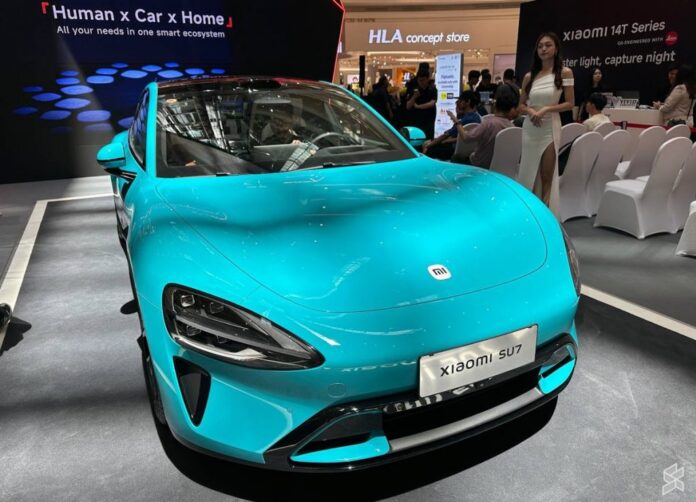Xiaomi is experiencing a significant decline in new orders for its SU7 electric sedan, following a series of setbacks that have sparked consumer backlash and raised concerns about the company’s reputation.
The SU7, which initially became a hit among Chinese drivers after its March 2024 launch, overtook Tesla’s Model 3 in sales by December, becoming one of the most popular electric vehicles in China. However, the company’s momentum faltered in recent weeks after a fatal accident involving the SU7, which is still under investigation.
This incident has triggered a widespread public discussion on the safety of Xiaomi’s smart driving features, prompting Chinese regulators to tighten oversight on their promotion and marketing.
Orders for the SU7 plummeted by 55% in April compared to March, with further declines in May. This downturn is a stark contrast to the peak in March when the car reached a record high of 23,000 orders in a single week.
Xiaomi has also faced additional criticism over misleading advertising, specifically regarding a dual-vent carbon fiber hood offered as an upgrade. Customers have complained about the discrepancy between Xiaomi’s marketing claims and the actual design, with nearly 400 SU7 Ultra owners requesting refunds after discovering the hood had no air ducts, as previously advertised.
The company’s reputation was further damaged when it issued an apology for “unclear communication” regarding the hood’s features. Xiaomi’s CEO, Lei Jun, acknowledged the difficulty of the past month, describing it as one of the hardest periods in his decade-long career.
In addition to the product issues, Xiaomi’s delivery time estimates for the SU7 have also raised questions, with many customers receiving their cars far earlier than expected, leading some to suspect that the company is artificially inflating delivery times as a marketing strategy. Xiaomi’s app, which provides delivery estimates, currently ranges from 26 weeks to 11 months, causing further confusion among customers.
Xiaomi has been known for its effective marketing strategies in the consumer electronics space, but the automotive sector presents new challenges. Unlike smartphones, car purchases involve more significant financial commitments and longer decision-making processes, leaving consumers with higher expectations for brand reliability and transparency. As Xiaomi works to resolve these issues, it faces the challenge of restoring consumer trust and ensuring its promises are met.




